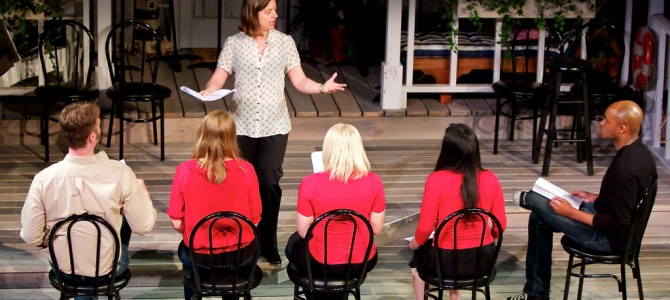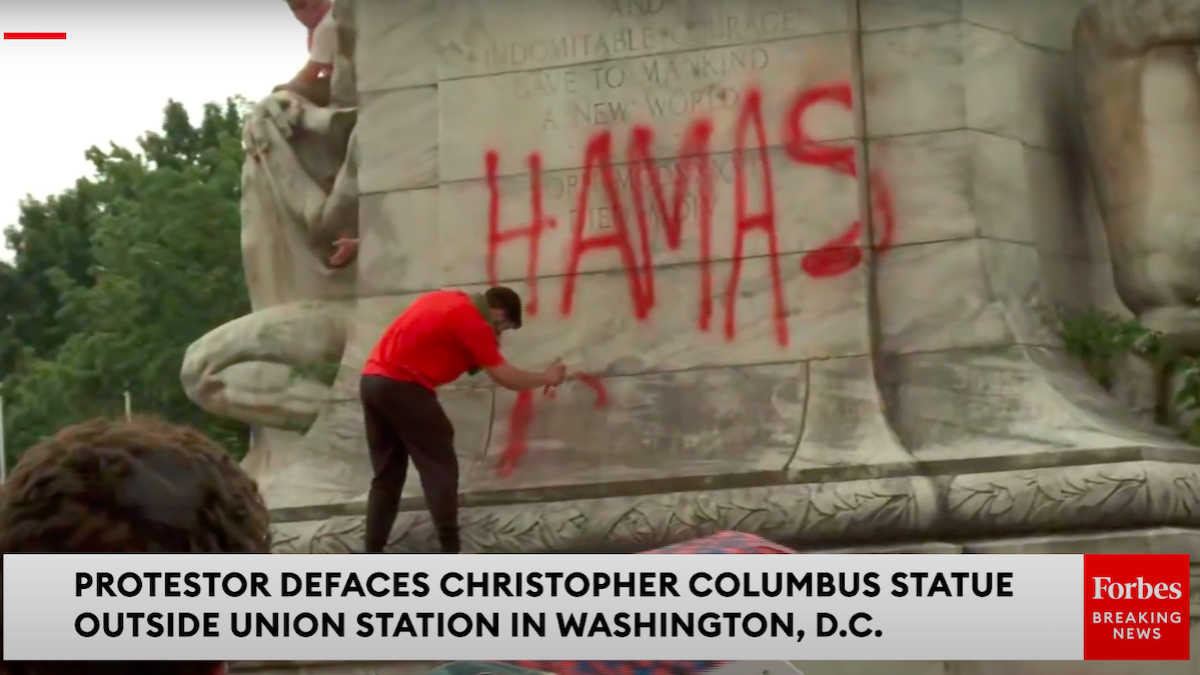
Several weeks ago at a gathering of Washington DC theater critics and artistic directors called “the Summit” a furor was started over the lack of work by women playwrights at major American theaters. Asked to explain the reason for this well established low representation of plays by women, one artist director explained that there just aren’t enough talented women playwrights in the pipeline, and that it will take at least a decade to fix the problem.
Outrage ensued, and rightfully so. It was an inane explanation, and one that is insulting to thousands of women playwrights who face real, institutional barriers to having their work produced.
As a result of the kerfuffle several theater artists around the country began compiling lists of accomplished women playwrights. One blogger ironically called it a binder full of women for theater companies looking for gender diversity. What has emerged from these efforts is an open source google document called “We Exist” listing over 1,200 playwrights, and its still growing. But somehow, this list of women playwrights has transformed into a list of “female and/or trans* playwrights.” The asterisk after trans is not a footnote its a…well, I don’t understand exactly what it is, but it has replaced “trans” without an apostrophe as the appropriate nomenclature. If your following the terms as they go by.
No doubt the addition of trans* playwrights to the list was an attempt at inclusion by a group who themselves feel excluded, and as such is perhaps laudable. But in another sense this confusing broadening of the definition of women undermines the effort for which the list was created in the first place. The inclusion of trans* writers suggests that a theater company can fulfill its commitment to gender parity without actually producing any plays written by people born as women. And in a more fundamental way it reduces the meaning of the word woman to whatever a man thinks it means since at any point a man can decide he is a woman and expect to be considered one.
The need for greater gender parity in the arts and entertainment goes beyond a simple question of fairness. The stories we tell help to frame and create the society we live in. Hearing women’s stories is valuable for the entire culture, especially at a time when the role of women is changing at an unprecedented pace. When the stories of a group of people numbering more than half our population are excluded, our understanding of gender, and of each other suffers. This is true (though on a much, much smaller scale) of the stories of trans* artists as well. But the experiences and identities of the trans* community cannot be conflated with the experiences and identity of women in general. Pretending these experiences are one and the same may be inclusive and progressive, but it is also dishonest and disempowering.
Talking about “the” experience or identity of any group of people is always a dicey proposition. And most likely there are as many definitions of what it means to be a woman as there are women. The idea behind gender parity is not that any one woman playwright will embody all women in society, but rather, that by including more women in our story telling we get a broader and better picture of what it is to be a woman in our world. Proponents of including trans* writers in this list argue that their stories are a part of this broad experience of women. But this begs a question, why not simply include these trans* writers as women, with no “and/ors” about it? Why list them separately?
The reason for changing “women” to “female and/or trans*” is purely political, it literally serves no practical purpose. This is clear because as theater companies peruse the list looking for plays by women, they will have no idea which of the playwrights are trans*. There is an optional box for writers to fill in what groups they identify with (with responses such as lgbtq, latino, human and many more), but in today’s world identifying with a group is not the same as identifying as a member of that group. What the addition of “female and/or trans*” to the title does is significantly broaden the mission of the list. No longer simply a call for more plays by women, it becomes a demand that theater companies and society as a whole accept these trans* writers as women in exactly the same way as any other woman.
Through the gender bending twist in the Bradley Manning case the question was raised whether we should use the name Chelsea or Bradley, the pronoun him or her and whether he should be sent to a men’s or women’s prison. In choosing to use the feminine pronoun for Manning liberal media outlets decided he was now a woman. It was a binary choice and did not involve any “ands”, “ors” or asterisks. The style guides basically said “use the pronoun the person wants applied to them.” By this definition any trans* writer could be considered a woman playwright provided they identify as a woman. For many, myself included, this is already a controversial proposition. But the We Exist list of playwrights goes a significant step further. It does not simply demand that a trans* writer be identified as female (as Manning often is), it demands that women (and all of us) include trans* people who do not even identify as female as women.
This is a confusing but important point. The use of and/or in “female and/or trans* playwrights” requires a bit of unpacking. It suggest that a woman can be female and trans*, (as in “I consider myself to be female”) as well as simply trans*, with no claim to female identity. In fact it states that being a woman need not have anything to do with being female. But if this is true, do we really need more plays by women? If any man who says he feels like a woman must be considered a woman then why can’t a man write women characters or stories about women just as authentically as a woman can? If gender has no basis in biology then why should we expect women to have any special insight into their own gender or its stories?
The implications of this new way of defining women are vast. And not just for the entertainment industry. The nation’s storytellers and the progressive academics from whom they receive their terminology (which by the way changes about once every ten minutes) have enormous influence. While most Americans don’t have to deal with these questions right now, that will change when their kid gets to college and is politely informed that they are not a man or a woman, but rather cisgendered, if they go to Oberlin they might even get this handy flyer from the school outlining their cisgender privilges. Before very long television and film will reflect the notion that biology is divorced from gender. And this will not have an empowering effect on women.
By using this definition we are not demanding that men be more open to the thoughts, feelings or ideas of women, we are demanding that women be more open to having their identity defined for them by men. The We Exist list has the potential to be a powerful tool for the advancement of women in the arts. At the very least it is a symbolic gesture that makes clear that there are women ready and able to play a much bigger role in our culture’s storytelling. But in a very real sense that worthy goal is hijacked by redefining of what a woman is. And that redefinition could very easily lead the same producers being urged to produce work by women to favor work that embraces this broad and controversial version of womanhood.
In asking producers to do more work by “female and/or trans*” writers we are also asking them to eschew work by women that embraces a more traditional understanding of gender. This is a common tactic in the cultural ground game, and one that conservatives tend to be slow to react to. A new normal is generated by artists and academics on a small and obscure scale, but as those artists and academics amass more power and fame, the new normal grows with them. Generally conservatives fail to act, or even notice until it is much too late, and society begins taking for granted a once controversial position.
Make no mistake, women writers face real challenges in the entertainment industry, from off off broadway all the way to the heights of Hollywood. Its a bad thing for our society, and we all have a responsibility to try to fix it. We all need to seek out work by women, we need to make sure our dollars flow to companies that give women a fair shake. And public opinion needs to punish those companies that don’t. But we should not turn that worthy mission into an opportunity to alter our concept of gender. Doing so may lead to great victories for those who believe biology and gender have nothing do with each other, but it will not help us achieve a culture in which the experiences of most women are more fully expressed and explored.
Follow David Marcus on Twitter.









